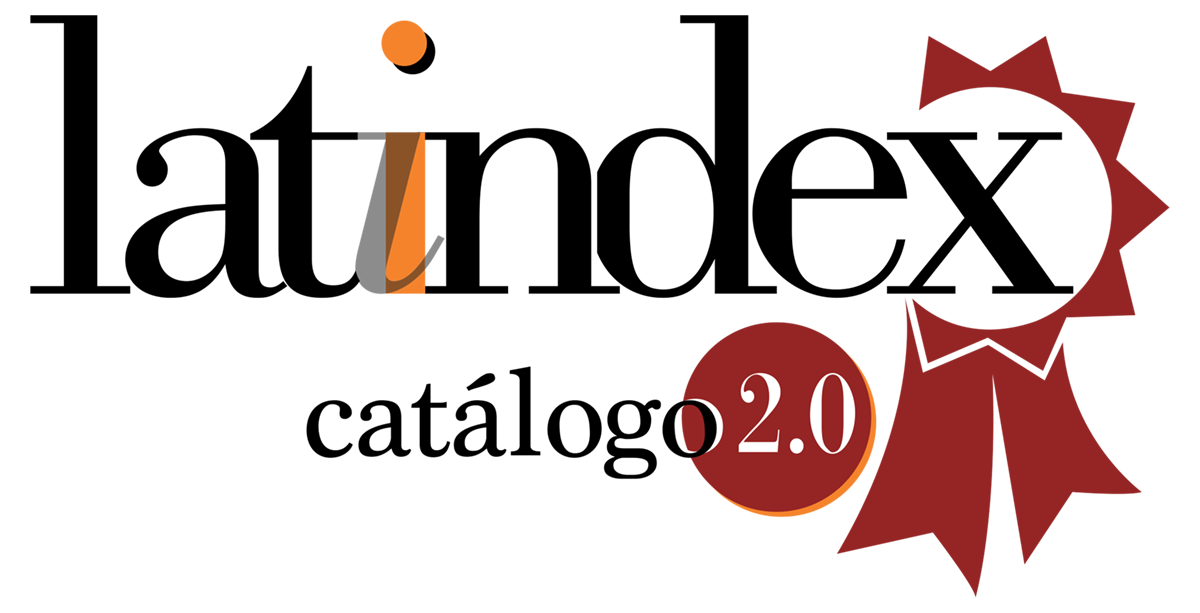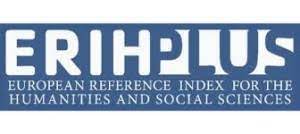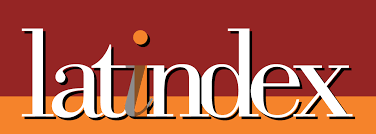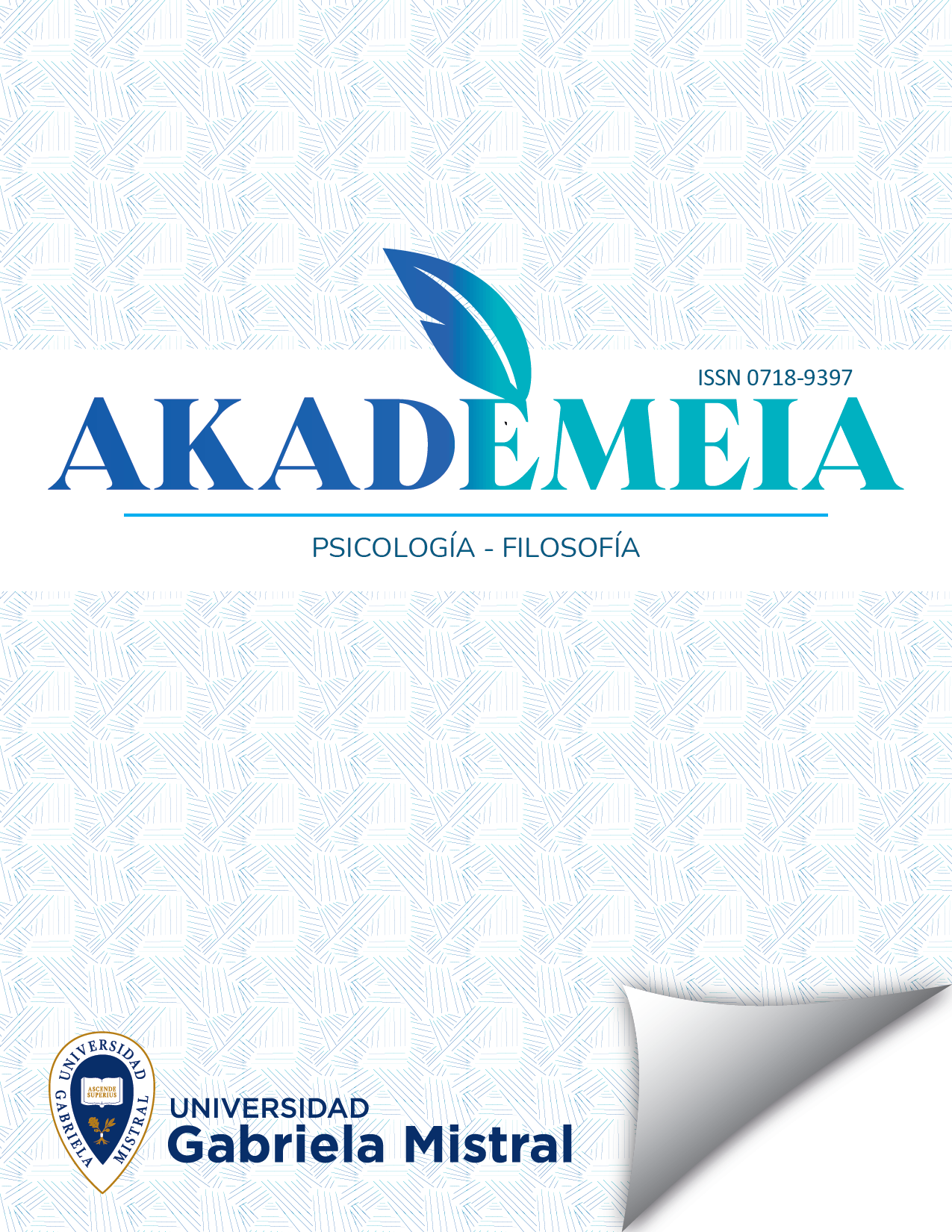Infusión de habilidades blandas en el currículo de la educación superior: Clave para el desarrollo de capital humano avanzado
DOI:
https://doi.org/10.61144/0718-9397.2016.137Resumen
El campo de la educación superior está bajo presión como nunca antes, ya que necesita preparar a los estudiantes para una participación activa en el mundo del trabajo. Hoy los empleadores buscan profesionales que demuestren habilidades blandas – cualidades personales que los transforman en colaboradores más adaptables, más proactivos, más resilientes y más responsables. El objetivo del presente artículo es abrir el debate en torno a la infusión de habilidades blandas en el currículo de las Instituciones de Educación Superior (IES) y su impacto en la futura inserción laboral de los egresados. Esto dice relación con las demandas del mercado laboral y el énfasis que actualmente se está dando al desarrollo de dichas habilidades socioemocionales. La metodología utilizada consistió en el análisis documental, confrontada con los puntos de vista del autor. El aporte dice relación la necesidad de infundir las habilidades blandas en el currículo e implementar estrategias metodológicas y evaluativas que mejoren las propuestas educativas. Se concluye con una síntesis, intentando explicar las relaciones entre los conceptos clave, con sus implicancias para la educación superior.
Citas
Aasheim, C., Li, L., & Williams, S. (2009). Knowledge and skill requirements for entry-level information technology workers: A comparison of industry and academia. Journal of Information Systems Education, 20(3), 349-356.
Araújo, U. y Sastre, G. (2008). El aprendizaje basado en problemas. Una nueva perspectiva de la enseñanza en la universidad. Barcelona: Editorial Gedisa.
Bassi, M; Busso, M.; Urzúa, S. y Vargas, J. (2012). Desconectados. Habilidades, Educación y Empleo en América Latina. Washington D.C.: Banco Interamericano de Desarrollo. Sector Social. División de Educación.
Binks M (1996). Enterprise in Higher Education and the graduate labour market. Education + Training, 38(2), 26-29.
Bonnet J (2012). Entrepreneurship and Economic Development. Centre de Recherche en Économie et Management, WP 2012-04. University of Caen Basse-Normandie, CREM-CNRS, UMR 6211.
Cao, L., & Nietfeld, J. L. (2007). College students’ metacognitive awareness of difficulties in learning that class content does not automatically lead to adjustment of study strategies. Australian Journal of Educational & Developmental Psychology, 7(31).
Chan, J.; Goh, J. and Prest, K. (2015). Soft Skills, Hard Challenges. International Higher Education. Recuperado de https://www.britishcouncil.org/sites/default/files/china_skills_gap_report_final_web.pdf
Chinotti, O. (2015). Hiring and Inspiring Graduates in the New Work Environment. Speech at “Soft Skills and their role in employability – New perspectives in teaching, assessment and certification”, workshop in Bertinoro, FC, Italy.
Cinque, M., (2015). Comparative analysis on the state of the art of Soft Skill identification and training in Europe and some Third Countries. Speech at “Soft Skills and their role in employability – New perspectives in teaching, assessment and certification”, workshop in Bertinoro, FC, Italy.
Cinque, M. (2016). Lost in translation. Soft skills development in European countries. Tuning Journal for Higher Education. University of Deusto. 3(2), 389-427
CNA-Chile – Comisión Nacional de Acreditación de Chile (2015). Criterios de Evaluación para la Acreditación de Carreras Profesionales, Carreras Profesionales con Licenciatura y Programas de Licenciatura. Recuperado de https://www.cnachile.cl/Criterios%20y%20Procedimientos/DJ%20009-4%20Criterios.pdf
Connelly, B. & Ones, D. (2010). An other perspective on personality: Meta-analytic integration of observers' accuracy and predictive validity. Psychological Bulletin, 136(6).
Duckworth, A; Peterson, C; Matthews, M. & Kelly, D. (2007). Grit: Perseverance and Passion for Long-Term Goals. Journal of Personality and Social Psychology, 92(6). Recuperado de, https://upenn.app.box.com/DuckworthPeterson
Elton, L. and Johnston, B. (2002). Assessment in Universities: A Critical Review of Research. New York: LTSN Generic Centre.
Fallows S & Steven C (2000). Building employability skills into the higher education curriculum: a university-wide initiative. Education + Training, 42(2/3/4), 75-82.
Garavan, T.N., Morley M., Gunnigle, P. & Collins, E. (2001). Human capital accumulation: the role of human resource development. Journal of European Industrial Training, 25(2/3/4.
Gerwertz, C. (2007). Soft skills in big demand: Interest in teaching students habits of mind for success. Recuperado de http://www.edweek.org/ew/articles/2008/10/15/08skills.h28.html.
Goleman, D. (2011). La inteligencia emocional. Buenos Aires: Zeta Bolsillo.
Heckman, J. (2012). Hard Evidence on Soft Skills. Focus, 29(2). Recuperado de: http://www.irp.wisc.edu/publications/focus/pdfs/foc292b.pdf
Juen, J.W.Y., V. Pang & Vitales, J. W. (2010). OBE Curriculum Implementation Process in Politeknik Kota Kinabalu: A Possible Evaluation Framework. In Prosiding Seminar Transformasi Pendidikan Teknikal, pp. 172- 181.
Kechagias, K. (2011). Teaching and assessing soft skills. Neapolis-Thessaloniki: 1st Second Chance School of Thessaloniki. Recuperado de: http://mass.educational-innovation.org/attachments/396_MASS%20wp4%20final%20report%20part-1.pdf
Kolb, D. (1984). Experiential learning. New York. Prentice-Hall, Englewood Cliffs. Recuperado de: http://academic.regis.edu/ed205/kolb.pdf
Laskey, M. and Hetzel, C. (2010). Self-regulated Learning, Metacognition and Soft Skills: The 21st Century Learner. ERIC. ED511589. Recuperado de http://files.eric.ed.gov/fulltext/ED511589.pdf
Lindqvist, E. and Vestman, R. (2011). The labor market returns to cognitive and non-cognitive ability: Evidence from the Swedish enlistment. American Economic Journal: Applied Economics, 3, pp. 101-128.
ManpowerGroup (2013). Talent shortage survey. Recuperado de http://www.manpowergroupsolutions.co.uk/wp-content/uploads/2015/05/ts_2013talentshortagesurvey-researchresults.pdf
Maxwell, N. (2007). Smoothing the transition from school to work: Building job skills for a local labor market. En D. Neumark, editor. Improving School-to-Work Ttransitions. New York: Rusell Sage Foundation.
McGuinness, S. (2006). Overeducation in the labour market, Journal of Economic Surveys, 20(3). DOI: 10.1111/j.0950-0804.2006.00284.x
McLaughlin, C.; Black-Hawkins, K. and McIntyre, D. (2004). Researching Teachers, Researching Schools, Researching Networks: A Review of the Literature. University of Cambridge. Recuperado de http://www.educ.cam.ac.uk/research/projects/super/ReviewOfLiterature.pdf
Moss, P. & Tilly, C. (2001). Stories employers tell. Race, Skills and hiring in America. New York: Russel Sage Foundation.
Nagle, Richard. (2010). Hiring, retention and training: Employers’ perspectives on trade and soft skills in South Carolina. USC: South Carolina Workforce Investment Board.
OCDE – Organización para la Cooperación y Desarrollo (2001). Definition and Selection of Competencies: Theoretical and Conceptual Foundations (DeSeCo). Recuperado de https://www.oecd.org/edu/skills-beyond-school/41529556.pdf
OCDE – Organización para la Cooperación y Desarrollo (2011). Skills for innovation and Research. Recuperado de https://biobs.jrc.ec.europa.eu/sites/default/files/generated/files/policy/OECD%202011%20Skills%20for%20Innovation%20and%20Research.pdf
Olsen, J. (2007). What does ‘ready’ mean? There is plenty of confusion about what it means to fully prepare students for life after high school. Recuperado de http://www.edweek.org/ew/articles/2007/06/12/40overview. h26.html.
Pachauri, D. & Yadav, A. (2012). Importance of soft skills in teacher education programme. International Journal of Educational Research and Technology. India: Society of Education.
Patrut, M. And Patrut, B. (2015). Social Media in Higher Education. Teaching in Web 2.0. U.S.: Information Science Reference.
Salvatierra, D. (2015). Brecha de habilidades blandas en Chile: Abriendo el debate educacional. Recuperado de http://pluralchile.org/wp-content/uploads/2015/06/Habilidades-Blandas-Plural-DS-2015-1.pdf
Talavera, E. R., and Perez-Gonzalez, J. C. (2007). Training in socio-emotional skills through on- site training. European Journal of Vocational Training, 40(1), 83-102
U. S. Camber of Commerce Foundation (2015). Bridging the soft skills gap. Recuperado de http://www.alleghenyconference.org/PDFs/Misc/BridgingSoftSkillsGap.pdf
Waterman, R; Waterman, J. and Collard, B. A. (1994). Towards a career resilient workforce. Harvard Business Review. Recuperado de https://hbr.org/1994/07/toward-a-career-resilient-workforce.
Zimmerman, B. J. (2002). Becoming a self-regulated learner: An overview. Theory into Practice, 41(2), 64-70.
Cómo citar
Licencia
Los autores/as conservarán sus derechos de autor y garantizarán a la revista el derecho de primera publicación de su obra, el cual estará simultáneamente sujeto a la Licencia de reconocimiento de Creative Commons (CC BY-NC-ND) 4.0 que permite a terceros compartir la obra siempre que se indique su autor y se comparta el documento, en formato pdf y con la paginación del número original, a través del que este ha sido publicado por la revista. Siguiendo las definiciones establecidas por la licencia (ver: https://creativecommons.org/licenses/by-nc-nd/4.0/deed.es) los números de la revistas seguirán los siguientes términos:
-
Atribución — Usted debe dar crédito de manera adecuada, brindar un enlace a la licencia, e indicar si se han realizado cambios. Puede hacerlo en cualquier forma razonable, pero no de forma tal que sugiera que usted o su uso tienen el apoyo de la licenciante.
-
No Comercial — Usted no puede hacer uso del material con propósitos comerciales.
-
Sin Derivadas — Si remezcla, transforma o crea a partir del material, no podrá distribuir el material modificado.
- No hay restricciones adicionales — No puede aplicar términos legales ni medidas tecnológicas que restrinjan legalmente a otras a hacer cualquier uso permitido por la licencia.












